The largest cemetery of warships in the Pacific
70 years after the largest naval battle in World War II, the Gulf of Truuk on the Pacific Ocean was opened for divers to admire the bodies of ships, and the remains of many soldiers resting deep in the water.
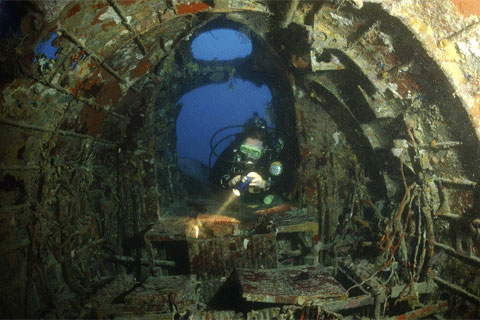
Truuk Lagoon, belonging to Micronesia, located in northern Australia used to be a very large Japanese naval base. An attack carried out by the Allies into this place caused 70 Japanese warships, submarines and aircraft to sink. Today it becomes a true underwater museum, protected by law. Scuba divers can see and contemplate the past. A diver discovered the bodies of ships in Truuk Bay. (Photo: Alamy)
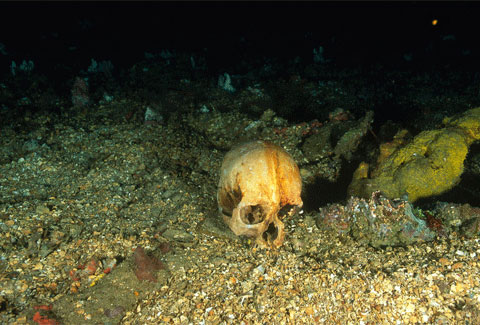
The skull of a soldier in the Aikoku Maru, sunk in World War II. (Photo: Getty)
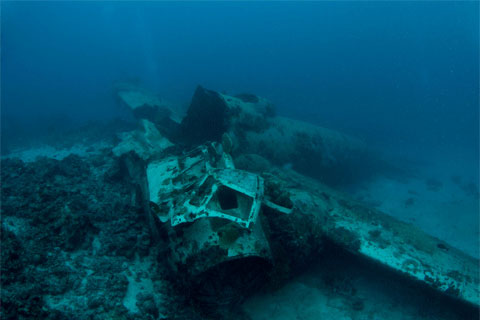
What remains of a bomber under the Gulf of Truuk. (2008 photo of Alamy)
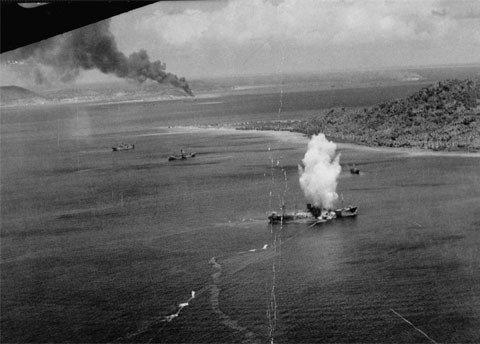
Torpedo of the US military aimed at Japanese fuel tankers during the 1944 battle. (Photo: Time & Life)
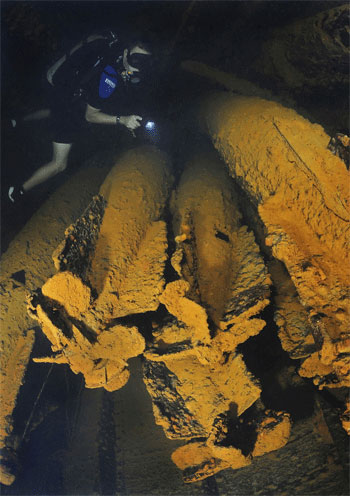
Scuba The diver next to the torpedoes on the corpse of the Heian Maru in Truuk Bay, in the Pacific nation of Micronesia. (Photo: Getty)
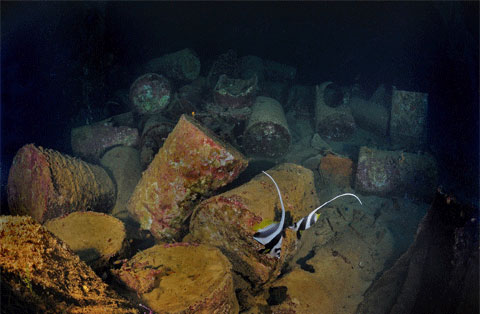
Gasoline tanks inside the wreck of Yamigiri Maru. 9Pictures: Getty)
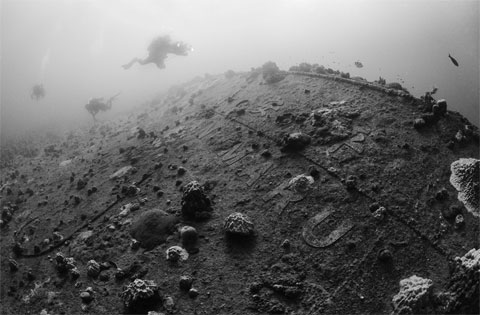
And this is the appearance of the hull after 70 years of lying on the seabed. (Photo: Getty)

American soldiers were rescued from Truuk Bay by submarines during the April 29 and April 30, 1944 battle. (Photo: AP)

The view of the bay area from above, can clearly see the lower floors of clouds, Japanese ships and enemy planes in a time of preparation for the war in late April 1944 (Photo: AP)
- The most frightening scary cemeteries in the world
- When modern warships confront ... sea storms
- New materials help Chinese warships
- Why don't planes often fly across the Pacific Ocean?
- Will hydroelectric dams eradicate the largest Pacific salmon?
- France proceeded to excavate the site from the Iron Age
- Discover the largest dinosaur cemetery in the world
- Discover an ancient 10,000 year old cemetery
- November 12, 1942 - The Guadalcanal battle breaks out, changing the face of the Pacific battle
- Seamless water battleship does not rival the US Navy
- The world's largest volcano lies under the Pacific Ocean
- 10 famous haunted cemeteries of America
 The 11 most unique public toilets in the world
The 11 most unique public toilets in the world Explore the ghost town in Namibia
Explore the ghost town in Namibia Rare historical moments are 'colored', giving us a clearer view of the past
Rare historical moments are 'colored', giving us a clearer view of the past The world famous ghost ship
The world famous ghost ship